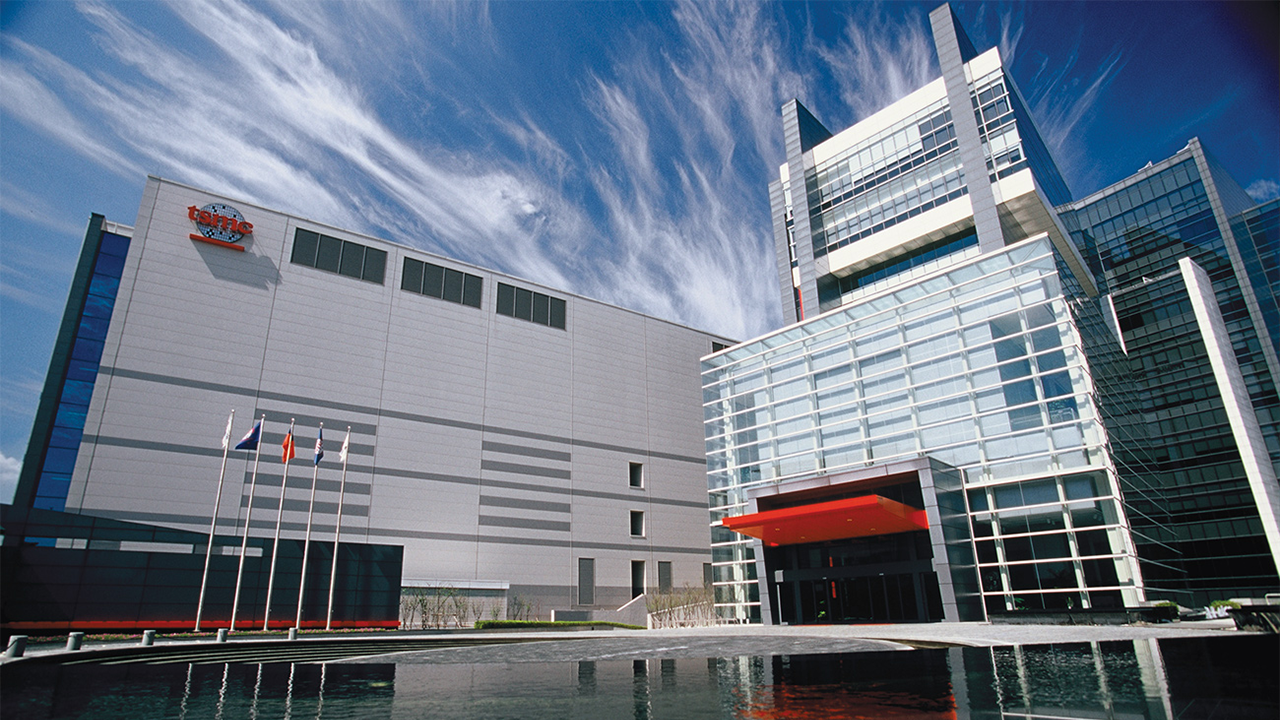U.S Department of Commerce finalizes $6.6 billion CHIPS Act funding for TSMC Fab 21 Arizona site
The site will build chips on TSMC's A16 (1.6nm-class) and N2 (2nm-class) process technologies

The U.S. government has shed some light on TSMC's plans concerning the new Fab 21 complex near Phoenix, Arizona, and revealed the foundry's plans to eventually build chips on its A16 (1.6nm-class) and N2 (2nm-class) process technologies in America by the end of the decade. Also, TSMC and the U.S. government today finalized funding of TSMC's Fab 21 under the U.S. CHIPS and Science Act.
TSMC and the U.S. Department of Commerce finalized the deal under which the contract chipmaker gets $6.6 billion in direct funding and $5 billion in loan guarantees under the CHIPS and Science Act to build its Fab 21 site in Arizona. The whole campus will require funding of approximately $65 billion, includes three fab modules, and will be completely built by the end of the decade. The fabs will create over 6,000 direct manufacturing jobs and over 20,000 accumulated construction jobs.
While the formal sign-off of the agreement between TSMC and the Commerce Department is important, the preliminary roadmap outline for Fab 21 is definitely no less so. For now, TSMC is committed to make chips on its most advanced production node announced to date — A16 — in the U.S., albeit at least about three years after it enters mass production in late 2026 in Taiwan.
TSMC's 1.6nm process, like its 2nm counterparts (N2, N2P, N2X), uses gate-all-around (GAA) nanosheet transistors and adds a unique backside power delivery system dubbed Super Power Rail. This advancement boosts performance and efficiency over N2P, offering up to 10% higher clock speeds at the same voltage and 15%–20% lower power consumption at the same frequency and complexity. Also, it promises a 7%–10% increase in transistor density, depending on design.
"TSMC appreciates the continual collaboration with customers, partners, local communities and the U.S. government beginning in early 2020," said Dr. C.C. Wei, chairman and chief executive of TSMC. "The signing of this agreement helps us to accelerate the development of the most advanced semiconductor manufacturing technology available in the U.S."
The Fab 21 manufacturing site will house three fab modules each producing chips using various process technologies, as per agreement between TSMC and the U.S. Department of Commerce:
- Fab 21 phase 1: N4 and N5 (4nm and 5nm-class) and their derivatives with enhanced performance, such as N4P, N4X, 4NP. Phase 1 is set to begin high-volume production of chips in the first half of 2025. Unofficially, Fab 21 phase 1 is already making A16 Bionic processors for Apple.
- Fab 21 phase 2: N3 (3nm-class) and its versions with improved performance, such as N3E, N3P, and N3X. Phase 2 is set to start HVM in 2028.
- Fab 21 phase 3: N2 (2nm-class), and A16 (1.6nm-class) and their variations with backside power delivery as well as performance and transistor density enhancements. Phase 3 is expected to begin production by the end of the decade.
The CHIPS Program Office (CPO) will release direct funding to TSMC Arizona for project capital expenses as construction, production, and commercial milestones are reached, while loans will be provided for amounts invested in these capital expenditures.
Get Tom's Hardware's best news and in-depth reviews, straight to your inbox.
"Today's final agreement with TSMC — the world's leading manufacturer of advanced semiconductors — will spur $65 billion dollars of private investment to build three state-of-the-art facilities in Arizona and create tens of thousands of jobs by the end of the decade," said President Joe Biden. "This is the largest foreign direct investment in a greenfield project in the history of the United States. The first of TSMC's three facilities is on track to fully open early next year […]. Today's announcement is among the most critical milestones yet in the implementation of the bipartisan CHIPS & Science Act, and demonstrates how we are ensuring that the progress made to date will continue to unfold in the coming years, benefitting communities all across the country."

Anton Shilov is a contributing writer at Tom’s Hardware. Over the past couple of decades, he has covered everything from CPUs and GPUs to supercomputers and from modern process technologies and latest fab tools to high-tech industry trends.
-
ezst036 That's actually pretty funny.Reply
American lobbyists worked this hard to cobble together this CHIPS monstrosity and the ?first recipient? (If there was others. I know Intel is over there whining like a toddler they haven't gotten any welfare yet)
Is going to be a foreign company. Irony comes in all flavors. Even if TSMC is second or third, the irony is not zero. -
DS426 Oh man, Pat G. is going to be even more PI**ED!!Reply
Don't forget that TSMC is going to charge customers more for specifying where their chips are produced, so they get better margins when the U.S. wants U.S.-made chips at TSMC fabs. Then, with the direct funding, loans, and tax breaks, and then treating American workers as inferior (allegedly) doesn't have good optics.
So, while encouraging foreign investment in the U.S. is great and all (though with caveats and not in all cases), the U.S. Gov can't pretend that all of this funding will pay itself back over time.